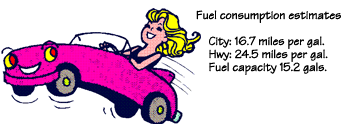Roman numerals are written as combinations of the seven letters in the table below. The letters can be written as capital (XVI) or lower-case letters (xvi).
| ||||||||||
You can use a roman numerals chart or conversion table to lookup Roman numerals or you can easily learn how to calculate them yourself with a few simple rules.
Brain Training Games - Improve memory with scientifically designed brain exercises.www.lumosity.com
Play Games on Facebook - 1000's of Free Games On Facebook To Choose From. Start Playing Now! facebook.com
Crossword Maker for Kids - Easily make custom crossword puzzles for kids. $39.95. PC's onlywww.CrosswordWeaver.com
How to Translate Roman Numerals
If smaller numbers follow larger numbers, the numbers are added. If a smaller number precedes a larger number, the smaller number is subtracted from the larger. For example, if you want to say 1,100 in Roman numerals, you would say M for 1000 and then put a C after it for 100; in other words 1,100=MC in Roman numerals.
Some more examples:
- VIII = 5+3 = 8
- IX = 10-1 = 9
- XL = 50-10 = 40
- XC = 100-10 = 90
- MCMLXXXIV = 1000+(1000-100)+50+30+(5-1) = 1984
| ||||||||||||||||||||||||||||||||||||||||||||||||||||||||||||||||||||||||||||||||||||||||||||||||||||||||||||||||
A Brief History of Roman Numerals
What is the history of Roman numerals? Roman numerals, as the name suggests, originated in ancient Rome. No one is sure when Roman numerals were first used, but they far predate the middle ages. Theories abound as to the origins of this counting system, but it is commonly believed to have started with the ancient Etruscans. The symbol for one in the Roman numeral system probably represented a single tally mark of the kind people would notch into wood or dirt to keep track of items or events they were counting.
Roman Numerals in Modern Times
Roman numerals are still used today in a variety of applications. If you are creating an outline for a story or report, you will be expected to use Roman numerals. They are also commonly used on clocks and watches, in books to number prefaces, forwards and book chapters as well as on films and big events. Monarchs and popes are usually numbered with this system as are guitar chords and the cranial nerves.
Roman Numerals in Crosswords
Crossword puzzle creators are fond of using Roman numerals in their puzzles, ranging from requiring translation of complex numbers to expecting puzzlers to know that a Roman numeral M stands for one thousand. If you want to be an expert crossword puzzler, you probably need to get familiar with the Roman numeral conversion process or keep a conversion chart handy. A typical crossword clue is "Half of MCIV" which should be answered "DLII".
